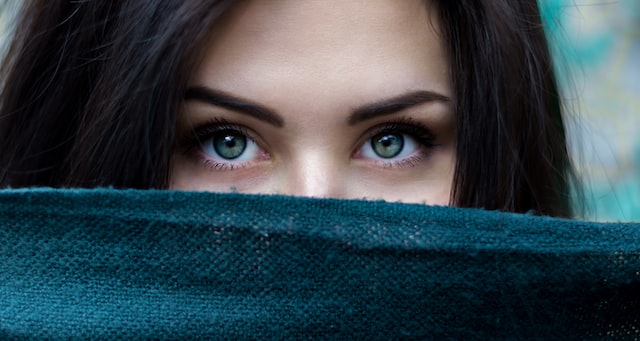Ever wondered if you’re an introvert or just socially anxious? A lot of people confuse social anxiety and introverts. Are you an introvert or just socially anxious.
Every single one of us has a unique personality, which shapes our thoughts, actions, social interactions, choices, and decisions. Finding the actual personality or nature of yourself helps you out in living a happy life. Knowing more about your unique personality can make you happier and improve your life by first letting you know how you feel most at comfort based on your personality preferences, and then by showing you how to play to your own strengths and address your own weaknesses in your relationships, career, spare time, as well as other aspects. We are essentially defined by our personalities. It is the need of everybody to make a scenario about who you are and which type of surroundings make you feel better. Your personality type might help you better understand how to respond to questions like.
- How do I find a job I’m enthusiastic about?
- How can I be happier?
- What keeps me motivated?
- How can I decide more smartly or wisely?
- How can I make good friends?
- Which kind of gathering suits me?
- How can I speak more effectively?

The best part about knowing your personality is that you can use the insights to make positive changes in almost every aspect of life.
Let’s make it easier to determine in which category you fall.
It might be because you enjoy your own company or You want to spend time with others but you can’t because you are socially anxious.
You have to determine whether you are an introvert or a socially anxious person. So that you can handle yourself in any situation accordingly. You cannot optimize your skills and reduce your weaknesses without self-awareness.
You must work on “you”.
Place yourself in the proper frame of mind and surround yourself with favorable circumstances if you want to keep learning and improve your life. Examine your choices and make an effort to live them.
INTROVERTS
If you are a person who tends to turn inward and concentrate more on your own thoughts, feelings, and moods rather than seeking out external stimuli, you might be an introvert. And if you feel refreshed and reenergized by engaging in activities like reading alone, taking a peaceful nature stroll, or watching your favorite television show all by yourself.
“Please go away, I’m introverting.”

If you’re an introvert, a peaceful day spent by yourself engaging in your interests and hobbies is your notion of a good time. If spending a few hours alone seems like a relaxing time to you, you may be an introvert. Introverts seem to love pondering and analyzing things on their own. You might be more of an introvert if you believe in yourself and appreciate learning in-depth things about yourself. As well as not being shy or lonely, introverts also don’t fear or detest other people. The typical social circle of an introvert is one or two close pals.
Observable Signs of Introversion:
- Need silence to concentrate
- Have awareness of oneself
- Make decisions Independently
- A feeling of comfort in alone
- Creative Mind
- Good problem solving skills
- Not enjoying group projects
- Meeting new individuals doesn’t excite you
- Excel at giving speeches, but not so much afterward
- Don’t have a lot of trust in people
- Prefer writing more than speaking
- Aware of your tastes
WHAT CAUSES YOU TO BECOME AN INTROVERT?
- Environment
- Genetics
- Parenting Approach
Most of times, introversion is influenced by one’s environment.
‘The Introvert Entrepreneur: Amplify Your Strengths and Create Success on Your Own Terms’
Beth L. Buelow, The Introvert Entrepreneur 2015
Social Anxiety
You want to join gatherings, but you can’t why? Have to think about it? It doesn’t mean that you are an introvert, it means you can’t face people. It might be because of social anxiety. Living your life is difficult if you have a social anxiety disorder. It’s normal to occasionally experience shyness, anxiety, or self-consciousness in public. Families and a few close friends are usually the only people with whom social phobic have trouble interacting. Individuals who are socially anxious, commonly experience self-consciousness and discomfort when others observe them or criticize them. People who suffer from social phobia tend to overestimate their worries and anxieties about what other people will think of them. People who suffer from social anxiety are also less likely to try new things. The genes and character that social phobic acquire may have a role in social anxiety.
It’s okay to be an introvert but it’s not okay to be socially anxious. Because introversion is a choice and your mind allows you to be alone and you find peace in it. However, social anxiety is what will hurt you and make life difficult for you. You might find it hard to find peace of mind or overthink. It can even lead to procrastination or results.
The only thing that could spoil a day was people, and if you could keep from making engagements, each day had no limits. People were always the limiters of happiness except for the very few that were as good as spring itself.
Ernest Hemingway, an American journalist
Signs of Social Anxiety
Are you genetically social phobic or does your environment cause you to act like that?
Let’s look at some of the signs of social anxiety:
- Expectations of the worst likely experiences and outcomes of a bad social experience,
- Nervousness or fear in social situations
- Dread speaking to or engaging with strangers.
- Be concerned that you’ll be worse off or be humiliated
- The anxiety of interactions having a chance for criticism
- Trouble catching your breath
- Fast Heart-Beat
- Establishing eye contact
- Dizziness or lightheadedness
- Feeling that your mind has gone blank
- Starting conversations
It’s crucial to keep in mind that you are not alone and that things can improve if you can connect to these symptoms. It requires effort and attention, but I assure you that it will be worthwhile. Investigate it with the help of a specialist if you’re unsure whether you could suffer from social anxiety. You’ll at the very least have greater self-awareness to transition to a less stressful existence.
Introversion VS social anxiety
A dread of people or social circumstances is indicated by nervousness. Conversely, introverts just don’t enjoy spending a lot of time socializing with others. Although the two are unrelated, many people mistakenly associate introverts with social anxiousness. In contrast to social anxiety, introversion is connected to social energy. When introverts do engage in social situations and have the ability to “switch it on,” they often have fun and relax. But, for persons with social anxiety; it’s also normal to feel nervous the entire time and lonely among the throng rather than enjoying it. People who have social anxiety may change plans even if they want to go, or they may miss opportunities. But, introverts love to stay alone, because they want to. In circumstances that are too controlling or too protective, people are more likely to acquire social anxiety.
“Nothing so much prevents our being natural as the desire to seem so.”
Introversion is a natural trait. Social anxiety is created.
Contrary to introverts, those with social anxiety are always judging themselves.
Being an introvert is a way of life; you have control over your decisions, as opposed to someone who is socially anxious, who may find it difficult to pursue their interests and cause other problems in their life.
When you have social anxiety, you worry about how other people will react to your social interactions or performances. Introverts aren’t frightened of what other people think.
With a deeper understanding of the differences between introversion and social anxiety, we can identify exactly what we experience.
It could be beneficial to talk about social anxiety disorder with other people who experience the disease. Going to a group with other individuals may sound intimidating. But everyone there can relate to what you’re going through.
I need space from a world that is filled with millions of mouths that talk too much but never have anything to say.
Kaitlin Foster
